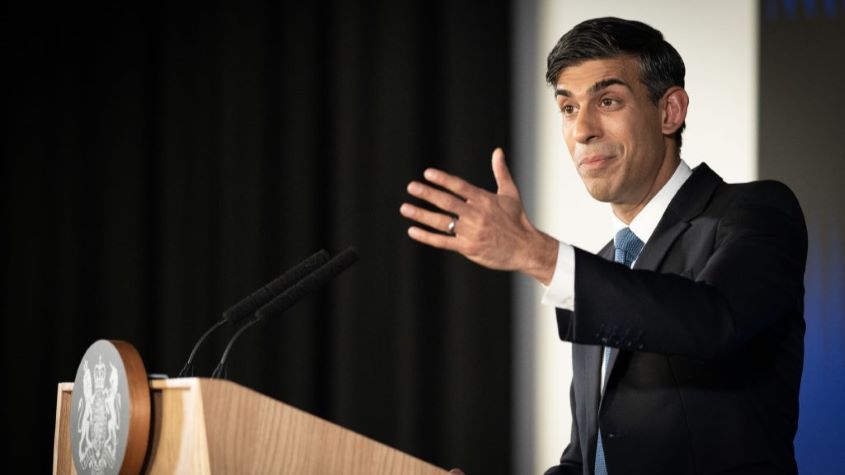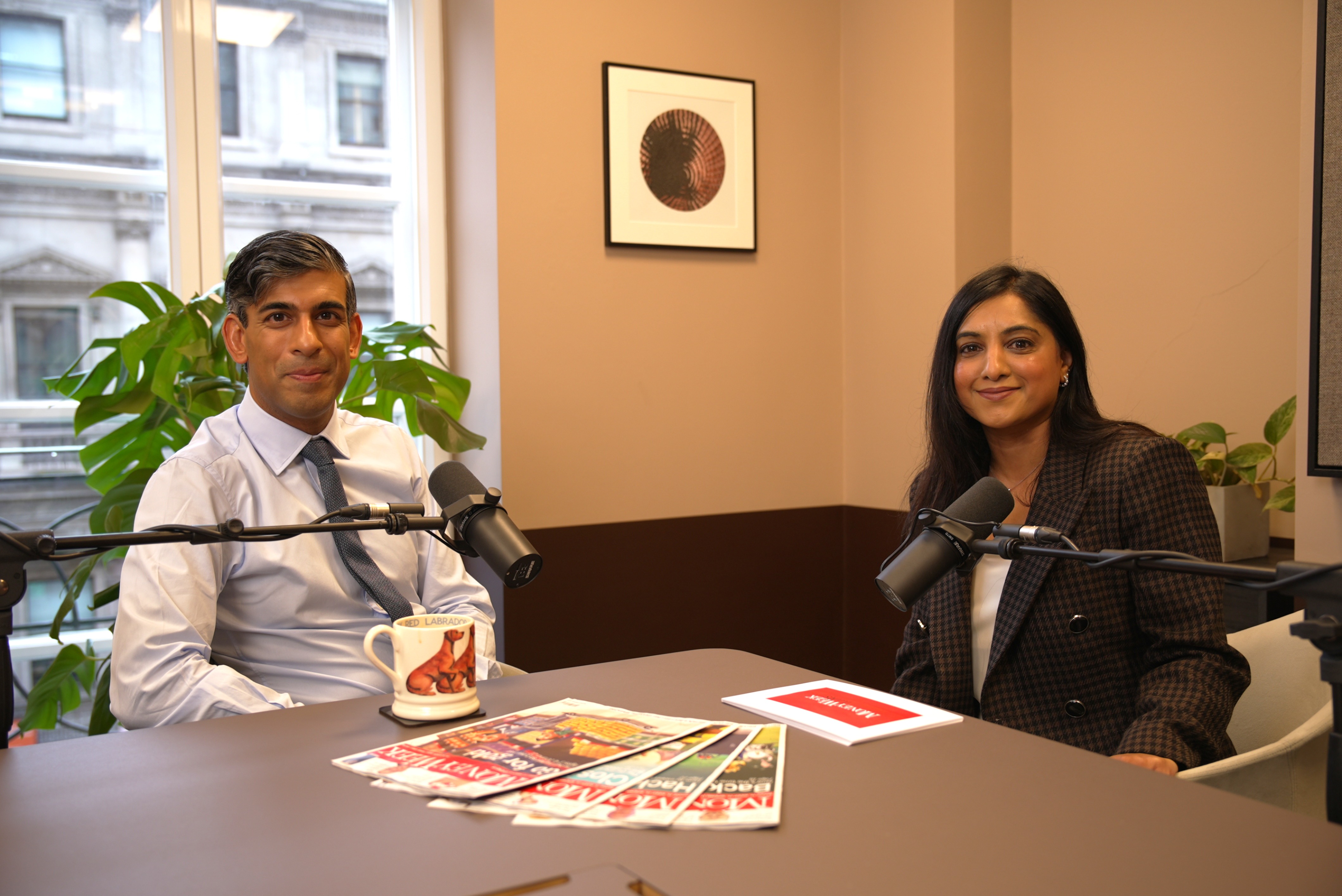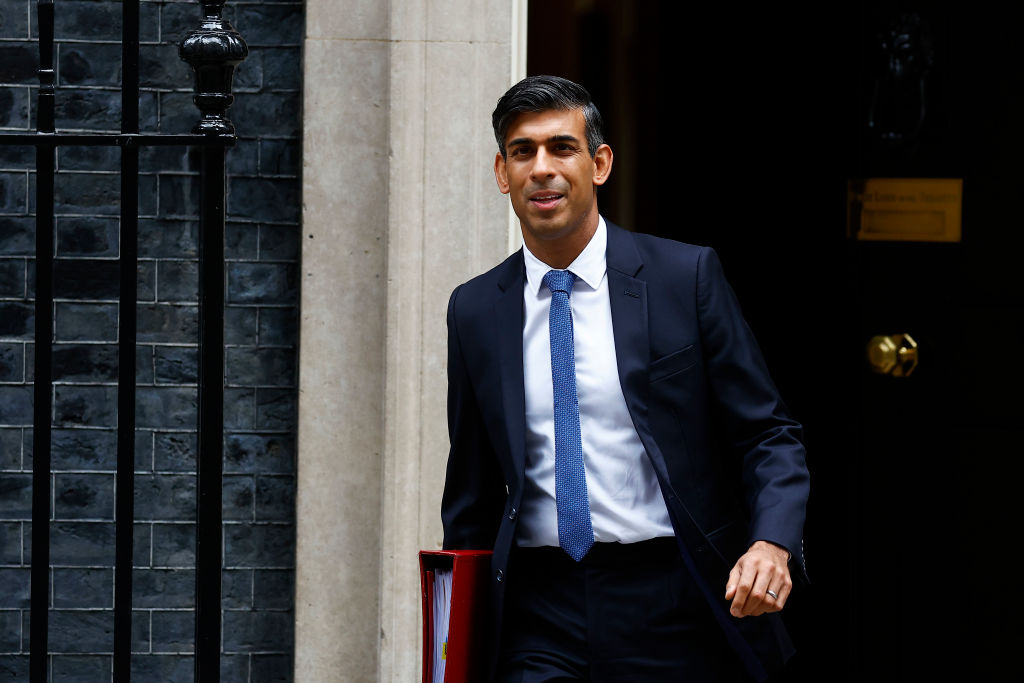Prime minister sets ambition of “maths to 18”
Rishi Sunak pledges to boost the country’s numeracy skills by requiring all school pupils in England to study some form of maths to age 18. This could include algebra and statistics, or financial literacy such as learning about mortgages and savings rates.


Get the latest financial news, insights and expert analysis from our award-winning MoneyWeek team, to help you understand what really matters when it comes to your finances.
You are now subscribed
Your newsletter sign-up was successful
Want to add more newsletters?

Twice daily
MoneyWeek
Get the latest financial news, insights and expert analysis from our award-winning MoneyWeek team, to help you understand what really matters when it comes to your finances.

Four times a week
Look After My Bills
Sign up to our free money-saving newsletter, filled with the latest news and expert advice to help you find the best tips and deals for managing your bills. Start saving today!
The prime minister has used his first speech of 2023 to set out his ambition for all schoolchildren in England to study some form of maths until the age of 18.
He said numeracy would become a central objective of the UK’s education system, and improving the nation’s skills was a government priority.
“One of the biggest changes in mindset we need in education today is to reimagine our approach to numeracy,” he said.
MoneyWeek
Subscribe to MoneyWeek today and get your first six magazine issues absolutely FREE

Sign up to Money Morning
Don't miss the latest investment and personal finances news, market analysis, plus money-saving tips with our free twice-daily newsletter
Don't miss the latest investment and personal finances news, market analysis, plus money-saving tips with our free twice-daily newsletter
“Right now, just half of all 16–19-year-olds study any maths at all. Yet in a world where data is everywhere and statistics underpin every job, our children’s jobs will require more analytical skills than ever before.”
Sunak likened this new focus on numeracy to the way the government had prioritised literacy since 2010, which had led to a significant improvement in standards.
The government does not plan to make maths A-Level compulsory. Instead, existing routes, such as the Core Maths qualifications and T-Levels, could be used, as well as more innovative options.
Sunak said studying a form of maths as a teenager would help them feel more confident with finances in later life, including “finding the best mortgage deal or savings rate”.
The prime minister’s speech highlighted five other pledges for 2023, covering the NHS and migrant boats, as well as inflation and the economy.
Why is Sunak focusing on numeracy?
The prime minister said he wanted to build a world-class education system, and as part of that it was essential to “reimagine” numeracy.
He highlighted the fact that just half of 16-19 year olds study any form of maths, and that the UK remains one of the only countries in the world that does not require children to study some form of maths up to the age of 18. This includes the majority of OECD countries, such as Australia, Canada, France, Germany and the USA.
About 8 million adults in England have the numeracy skills of primary school children, according to the government.
Today’s speech was Sunak’s first major intervention on education since becoming PM, and reflects his mission to ensure that more children leave school with the right skills in numeracy and literacy.
How will “maths to 18” work?
The scheme will involve a large reform to the education system - one that could be hampered by a lack of funding, and crucially, a lack of maths teachers.
There are few details so far. Sunak says he will start the work of introducing “maths to 18” during this parliament and finishing it in the next parliament. This means the scheme would not be introduced before the next general election.
The idea of compulsory maths lessons is unlikely to mean that all teenagers must study complex equations and topics like trigonometry.
Sunak referenced the need to be innovative, and reimagine our approach to numeracy.
He said: “‘Maths to 18’ will equip young people with the quantitative and statistical skills that they will need for the jobs of today and the future. This includes having the right skills to feel confident with finances in later life, including finding the best mortgage deal or savings rate.”
Ensuring the scheme teaches financial literacy
Experts have largely welcomed the prime minister’s announcement, with the caveat that teaching maths to 18 must reflect real-life situations, and boost the nation’s financial literacy.
Sam Sims, chief executive of National Numeracy, a charity, said: “We will be looking for the new policy to focus on developing the kinds of skills that everyone needs to apply maths to real-life problems, at work and in life.”
Research by National Numeracy shows that almost a third (30%) of 18- to 24-year-olds said using maths and numbers made them feel anxious.
Sims added: "Poor numeracy is holding the UK back. It blights lives and livelihoods, limits social mobility and contributes to pervasive problems from unemployment to poor health and debt. Improving numeracy offers benefits right across society.”
Richard Wilson, chief executive of the investment platform interactive investor, said: “Basic maths skills are essential. But while learning Pythagoras may be really useful for engineers and budding snooker players, our educators should focus on real-world skills for the many, so our next generation can invest in their future with a firm grip on the financial basics.”
Financial education is currently on the curriculum for state secondary schools in England (and more widely in the devolved nations), but many schools are academies or free schools, so do not have to meet this requirement. In addition, it is not part of the primary school curriculum in England.
Many financial experts and charities have been calling for financial education to be taught in primary schools, especially considering research shows that adult money habits are typically formed at age 7.
Bethan Lloyd, head of responsible wealth management strategy at the wealth manager Quilter, said: “Sunak's plan to make maths compulsory up to the age of 18 will only be effective if the curriculum gives students the practical skills they need for both work and life. Helping young children first learn about the merits of delayed gratification and saving, and then, as they get older, introducing more practical topics like pensions and mortgages, will give UK children and young adults a rounded financial education that will help them cope in times like these."
“Multiply” - a free maths programme for adults
Sunak mentioned in his speech how numeracy was a topic close to his heart, and as chancellor he had introduced the “Multiply scheme”.
Indeed, back in October 2021, he had unveiled a new national programme that would address poor numeracy skills among UK adults. Sunak said it would receive £560 million in funding over the next three years, giving thousands of adults free maths lessons and coaching.
The programme was supposed to launch in the spring of last year.
However, it does not appear to have launched yet, with the government website for Multiply still referencing that it will “launch this year”.
What schemes are available to adults wanting to improve their numeracy skills?
Many local authorities and private colleges run maths and numeracy courses for adults. Some charge a fee, while others are free. Course may be classroom-based, online, part-time or full-time.
You can search the National Careers Service for a course near you.
You can also watch bitesize videos on National Numeracy’s website and take its free numeracy challenge.
What else did the prime minister say in his speech?
Sunak made five pledges that he said would “provide peace of mind”. These include reducing NHS waiting lists, creating laws to stop migrant boats crossing the Channel, and a trio of economic-focused promises.
First, Sunak promises to halve inflation this year - currently running at 10.7% - to ease the cost of living. However, it is forecast to fall by more than half anyway.
Second, he promised to grow the economy, which will create jobs. Third, he pledged to ensure national debt is falling.
Get the latest financial news, insights and expert analysis from our award-winning MoneyWeek team, to help you understand what really matters when it comes to your finances.

Ruth is an award-winning financial journalist with more than 15 years' experience of working on national newspapers, websites and specialist magazines.
She is passionate about helping people feel more confident about their finances. She was previously editor of Times Money Mentor, and prior to that was deputy Money editor at The Sunday Times.
A multi-award winning journalist, Ruth started her career on a pensions magazine at the FT Group, and has also worked at Money Observer and Money Advice Service.
Outside of work, she is a mum to two young children, while also serving as a magistrate and an NHS volunteer.
-
 Should you buy an active ETF?
Should you buy an active ETF?ETFs are often mischaracterised as passive products, but they can be a convenient way to add active management to your portfolio
-
 Power up your pension before 5 April – easy ways to save before the tax year end
Power up your pension before 5 April – easy ways to save before the tax year endWith the end of the tax year looming, pension savers currently have a window to review and maximise what’s going into their retirement funds – we look at how
-
 Rishi Sunak: MoneyWeek Talks
Rishi Sunak: MoneyWeek TalksPodcast On the MoneyWeek Talks podcast, Rishi Sunak tells Kalpana Fitzpatrick that we need better numeracy skills to improve financial literacy and boost the economy.
-
 Is an inheritance tax (IHT) cut on the way?
Is an inheritance tax (IHT) cut on the way?Tax Talk that the government might cut or scrap inheritance tax in its Autumn Statement is rife. We look at how it could be reformed, and what difference it would make.
-
 Act now to bag NatWest-owned Ulster Bank's 5.2% easy access savings account
Act now to bag NatWest-owned Ulster Bank's 5.2% easy access savings accountUlster Bank is offering savers the chance to earn 5.2% on their cash savings, but you need to act fast as easy access rates are falling. We have all the details
-
 Moneybox raises market-leading cash ISA to 5%
Moneybox raises market-leading cash ISA to 5%Savings and investing app MoneyBox has boosted the rate on its cash ISA again, hiking it from 4.75% to 5% making it one of top rates. We have all the details.
-
 October NS&I Premium Bonds winners - check now to see what you won
October NS&I Premium Bonds winners - check now to see what you wonNS&I Premium Bonds holders can check now to see if they have won a prize this month. We explain how to check your premium bonds
-
 Government considering cuts to inheritance tax, reports say
Government considering cuts to inheritance tax, reports sayThe Sunday Times reported government officials are considering cuts to inheritance tax ahead of the general election.
-
 The best packaged bank accounts
The best packaged bank accountsAdvice Packaged bank accounts can offer great value with useful additional perks – but get it wrong and you could be out of pocket
-
 Bank of Baroda closes doors to UK retail banking
Bank of Baroda closes doors to UK retail bankingAfter almost 70 years of operating in the UK, one of India’s largest bank is shutting up shop in the UK retail banking market. We explain everything you need to know if you have savings or a current account with Bank of Baroda